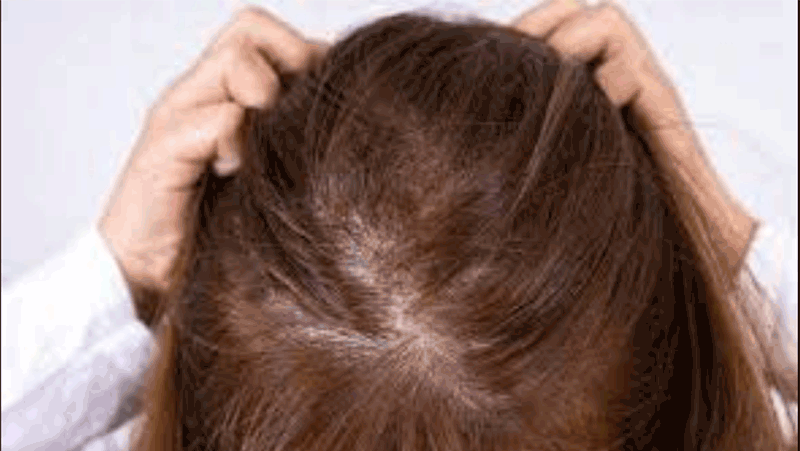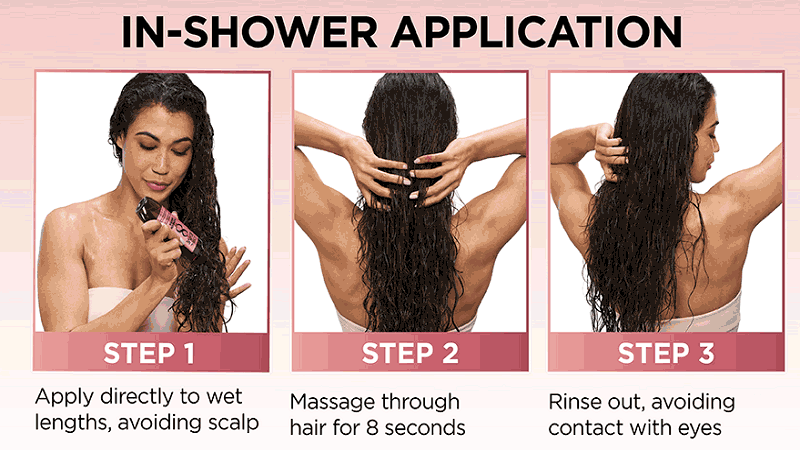If you have diabetes, you may be wondering if your condition can cause hair loss. Unfortunately, there is a link between diabetes and hair loss. In this blog we will discuss how diabetes can affect your hair and what you can do to minimize the risk of hair loss. We will also discuss the different types of hair loss associated with diabetes, as well as some tips on how to cope with hair loss. By the end of this blog, you will have a better understanding of how diabetes affects your hair and what steps you can take to keep your hair healthy.
Understanding Diabetes and Its Effects on Hair Loss
Diabetes is a serious medical condition that can cause a variety of health issues. One of the most common side effects of diabetes is hair loss.
Diabetes can cause hair loss due to its effects on the body’s hormones, circulation, and metabolism. High blood sugar levels can lead to inflammation and damage to the hair follicles, which can cause hair loss.
Additionally, diabetes can cause complications with the scalp, such as dryness, itching, and burning, which can also contribute to hair loss. Fortunately, there are treatments available to help combat hair loss caused by diabetes. Maintaining a healthy lifestyle, managing blood sugar levels, and using topical treatments can all help to reduce hair loss.

a. Types of Diabetes and Their Link to Hair Loss
Diabetes is a chronic condition that affects how the body processes sugar, and can have an unexpected effect on hair health. Diabetes can cause hair loss, but not all types of diabetes necessarily lead to hair loss.
Whether or not diabetes causes hair loss depends on the type of diabetes, the level of blood sugar in the body, and the individual’s individual health. Type 1 diabetes, which is caused by the body’s inability to produce insulin, is not typically linked to hair loss.
Type 2 diabetes, which is caused by the body’s inability to effectively use insulin, can cause hair loss in some people. High blood sugar levels can damage the hair follicles, leading to hair loss. If you are living with diabetes, it is important to maintain a healthy lifestyle including a balanced diet and regular exercise to help keep your blood sugar levels in check and help prevent hair loss.
i. Type 1 Diabetes
Living with Type 1 Diabetes can come with a variety of symptoms and side effects. One of the less commonly known effects is hair loss.
While the mechanisms of how diabetes can cause hair loss aren’t fully understood, it has been linked to changes in hormones, poor circulation, and poor nutrition due to poor diabetes management. Fortunately, there are some steps that can be taken to prevent or reduce the chances of hair loss due to diabetes such as managing blood sugar levels, eating a balanced diet, and talking to your doctor.
ii. Type 2 Diabetes
Type 2 diabetes can cause hair loss due to the elevated levels of glucose in the blood, which can damage the hair follicles. When the hair follicles are damaged, the hair growth cycle is disrupted, leading to excessive shedding and thinning of the hair.
High levels of glucose can also cause the scalp to become inflamed and make it more difficult for the hair to grow. The best way to prevent hair loss due to diabetes is to keep your blood glucose levels in check and to maintain a healthy lifestyle.
Eating a balanced diet, exercising regularly, and maintaining a healthy weight are all important steps in preventing and managing diabetes-related hair loss.
Common Causes of Hair Loss for Diabetics
Diabetes can indeed have an adverse effect on your hair health. Many diabetics experience hair loss due to the condition, as high blood sugar levels can damage your hair follicles and reduce their ability to grow.
In addition, the hormonal changes associated with diabetes can cause hair to thin out and become brittle, resulting in further hair loss. Fortunately, there are some steps you can take to prevent hair loss for diabetics.
Eating a healthy, balanced diet, controlling your blood sugar levels, and managing stress levels can all help keep your hair healthy and reduce the risk of hair loss.
Treatment Options for Hair Loss Due to Diabetes
Hair loss due to diabetes is a common concern for many people diagnosed with the condition. While it can be distressing, there are treatments available that can help.
Diabetes-related hair loss is typically caused by the hormonal imbalances that come with the condition, including an increase in androgens (male hormones) that can lead to a condition called androgenic alopecia. Luckily, treatments like minoxidil, finasteride, and laser therapy can help to reduce the effects of hair loss and restore hair growth.
Additionally, dietary and lifestyle changes can help to reduce the amount of hair loss due to diabetes. Such as avoiding excessive sugar and exercising regularly.
a. Medical Treatments
Diabetes is a serious condition that can cause a variety of health problems, including hair loss. People who have diabetes may experience thinning of the hair on the scalp, as well as in other areas of the body.
The cause of this hair loss is due to the high levels of glucose in the blood. Which can affect the hair follicles, causing them to become weak and brittle. Treatment for diabetes-related hair loss includes controlling the diabetes, using medications to treat the underlying condition, and using topical treatments and shampoos to help the hair regrow.
In some cases, hair transplant surgery may be recommended. It is important to speak with a healthcare professional to determine the best treatment for diabetes-related hair loss.
b. Dietary Changes
It’s a question commonly asked by those living with diabetes – can it cause hair loss? The answer is yes, but not in the way you might think. Diabetes can cause hair loss through dietary changes that are often part of the recommended treatment for the condition.
Eating a healthy, balanced diet is essential for managing diabetes. It can also have a positive effect on your hair health. Eating a diet rich in lean proteins, healthy fats, and complex carbohydrates can help to ensure that your body is getting all the vital nutrients it needs to maintain strong, healthy hair.
It’s also important to limit your intake of processed foods, which can cause your blood sugar levels to spike and lead to hair thinning and loss. Taking care to make healthy dietary changes can help to keep your hair healthy and strong, and keep diabetes under control.
c. Home Remedies
Having diabetes can have many consequences on your body, including your hair. Diabetes can cause hair loss, making it difficult to maintain a healthy head of hair.
There are many home remedies that can help reduce this symptom and promote healthy hair growth. These include eating a balanced diet, managing stress, using essential oils, and taking vitamins and minerals such as biotin and zinc.
Additionally, avoiding tight hairstyles and using gentle hair care products can help to protect your hair from further damage. With the right care and treatment, you can successfully manage your diabetes and keep your hair healthy and strong.
Prevention Tips to Combat Hair Loss Due to Diabetes
Living with diabetes comes with its own set of challenges. But one of the lesser-known side effects of the condition is hair loss. The good news is that there are steps you can take to help prevent hair loss due to diabetes.
Through proper self-care and lifestyle management. You can mitigate the risk of hair loss and keep your locks looking their best. Here are some tips to follow: 1.
Maintain healthy blood sugar levels. Keeping your blood sugar levels within a healthy range is essential for managing diabetes and preventing hair loss. Eat a balanced diet, exercise regularly, and take your medications as prescribed to keep your blood sugar levels in check. 2. Avoid over-styling. Heat and chemical treatments such as dyes and relaxers can damage your hair and lead to breakage or thinning. Limit the use of heat and chemical treatments and opt for gentler styling options like braids and ponytails. 3. Use protective styling. Protective styling can help protect your hair from damage and breakage. Wear hats, scarves, and other headgear to protect your hair from the sun and cold weather. 4. Take supplements. Certain vitamins and minerals such as biotin, zinc, and iron can help promote healthy
Living with Diabetes and Hair Loss
It’s no secret that diabetes can affect your body in many different ways, and one of those ways is through hair loss. If you’re living with diabetes and have noticed thinning hair or bald patches, you may be wondering if there is a connection.
The answer is, yes—diabetes can cause hair loss. The good news is that there are ways to manage this side effect and achieve healthier hair.
Hair loss can be caused by uncontrolled diabetes because when blood sugar is not regulated, it can damage the hair follicles and disrupt their growth cycle, leading to shedding and balding. Other factors such as stress, poor nutrition, and certain medications can also contribute to hair loss in those with diabetes, so it’s important to be aware of these potential causes and to take steps to improve your overall health. Fortunately, hair loss is usually reversible once diabetes is managed. Eating a balanced diet, exercising regularly, and taking your prescribed medications can help to control your blood sugar levels, which in turn can help to promote healthy hair growth. If you’re concerned about hair loss, talk to your doctor about ways to manage your diabetes and potentially reduce symptoms.

